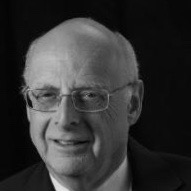
Unlike any other anti-Semitic incident, the Tree of Life Congregation tragedy has destroyed American Jews’ assumptions about our place in American society. We believed that deadly acts of anti-Semitism had been relegated to another era, only to see the rebirth of violent hate in Pittsburgh’s Squirrel Hill neighborhood and beyond. Now, caught up in a suddenly tense and hostile political climate, America’s Jewish community is struggling to find its political voice.
As a community, we hold to a series of core beliefs. We envision our Judaism and our Americanism to be in consort with each other. We believe each generation builds upon the last. And we see the pursuit of these value propositions advancing the perfectibility of humankind.
Following World War II, globalism would redefine America’s place in the world. As a central player in promoting regional models of collective action, the United States would form military alliances and economic trade arrangements designed to connect this nation with the world. The genius of the Marshall Plan and the success of NATO had symbolized the post-war American model of global engagement. Many of us also became globalists. We asserted our role in advocating for human rights on the world stage, beginning with Soviet Jewry and extending to endangered communities well beyond the Jewish world.
Because of our economic and social standing, and the individual and collective achievements of Jews, we have taken pride that Jewish Americans disproportionately contribute to this nation’s cultural messaging, imprinting its social behaviors and helping to frame its political conversations.
The Trump presidency has brought about a fundamentally disruptive moment in this nation’s political culture. Not only are we experiencing strikingly different policy options and directions, but the current cultural artifacts of politics — namely how this president operates — dramatically challenge the existing norms of political behavior and action. As our society is shifting from a period of American liberalism to political populism, deep fissures are dividing Americans in general and Jews in particular. Jewish political differences may never have been more pronounced than they are today, as Jews debate and disagree over how to define their vision for America and their own self-interests.
Amid this fundamental political sea change that appears to be underway, with new strains of anti-Semitism and anti-Zionism emerging to test America’s social fabric, America’s Jews are experiencing a new type of angst. After decades of being seen as political outsiders, Jews in recent times have become defined as part of the United States’ power class — or, within some circles, the “oppressor class.” On the left, political forces embrace the “intersectionality” movement and interject their anti-Zionist convictions as they dismiss Jews as privileged white political actors. By embracing the boycott, divestment and sanctions (BDS) movement, the political left has targeted Israel as a strategic gateway to its war on the Jews. On the political right, we see patterns of both blatant and subtle anti-Semitism. The liberal Jewish establishment is blamed for promoting “anti-white policies” such as immigration and diversity. The alt-right and others see egalitarianism, globalism and multiculturalism as Jewish-inspired, liberal initiatives that run counter to American nationalist norms and values.
“With new strains of anti-Semitism and anti-Zionism emerging to test America’s social fabric, America’s Jews are experiencing a new type of angst.”
A debate has arisen within the Jewish community over which of these political assaults, from the right or the left, should be considered more potentially damaging to America’s Jews and our interests. In arguing such questions, advocates seek to minimize the impact of one side over the other, suggesting that there are degrees to the new politics of hate, as if anti-Jewish behavior is somehow less threatening or damaging from one political extreme than another.
Are the political climate and social fabric of this society coming undone, and in the process are Jews finding themselves increasingly disconnected from the changing mores and values that define the changing American character? What are the contributing ingredients to this new condition?
Pittsburgh may have awakened us to this new and uncomfortable reality. The loss of historic memory and a devaluing of the past give credence to our opponents. The radicalization of our nation’s politics and the invention of political myths are contributing to this new political order. In an age when the rhetoric of hate has taken center stage, this must be seen as problematic to the Jewish condition.
Today, there is a growing political uncertainty among some of us. The impact of the Pittsburgh attack represented more than an assault on individual Jews. It brought to light the question of our collective well-being. Many Jewish voters entered their voting booths on Nov. 6 still dealing with the aftermath of the most deadly anti-Semitic shooting in American history.
We need to remind ourselves that, historically, Jews have not fared well in political regimes built around extreme nationalism and hate rhetoric. Identity politics, which has become the mantra for some, may produce some short-term victories; but ultimately it must be seen as highly problematic for the Jewish community.
The biggest potential story of 2018 may still be unfolding. In the aftermath of Trump’s remake of the Republican Party, where will prominent conservative thought leaders and writers such as Bret Stephens and Max Boot find a political home? Unhappy with their party’s white nationalistic rhetoric and anti-immigrant focus, what political pathways are ahead for Jewish Republicans who differ with the president?
One needs to ask a similar question to Jewish Democrats who, in some cases, are increasingly concerned about the progressive wing of their party and, more pointedly, its anti-Israel, pro-BDS sentiments.
Over time, are we likely to see a fundamental, political realignment involving disillusioned Jewish Republicans and Democrats? Where do American Jewish activists find a new political base in this uncertain climate?
In both real and symbolic ways, has Pittsburgh distorted and destroyed our assumptions about ourselves and our beliefs about America? We had understood this nation to represent a different proposition: here, anti-Semitism would have no space and we envisioned our Judaism in consort with our Americanism.
At this moment, we are a people in search of our political identity.
There is a heightened awareness among Jews of the growth of extremist expressions challenging not only the existing democratic norms of the nation but also how minority communities, including Jewish Americans, are being categorized and threatened. As we have seen, the fallout from this type of politics has also invaded today’s Jewish public space, where Jews are battling against one another.
Who today can speak to the collective priorities of American Jewry? A new and dangerous divide seems to have replaced the once robust voices of an energized polity. As this American Jewish journey unfolds, how we manage this moment represents a critical test about our character and credibility and our future roles as Americans.
Steven Windmueller is the Rabbi Alfred Gottschalk Emeritus Professor of Jewish Communal Service at HUC-JIR, Los Angeles.


































 More news and opinions than at a Shabbat dinner, right in your inbox.
More news and opinions than at a Shabbat dinner, right in your inbox.